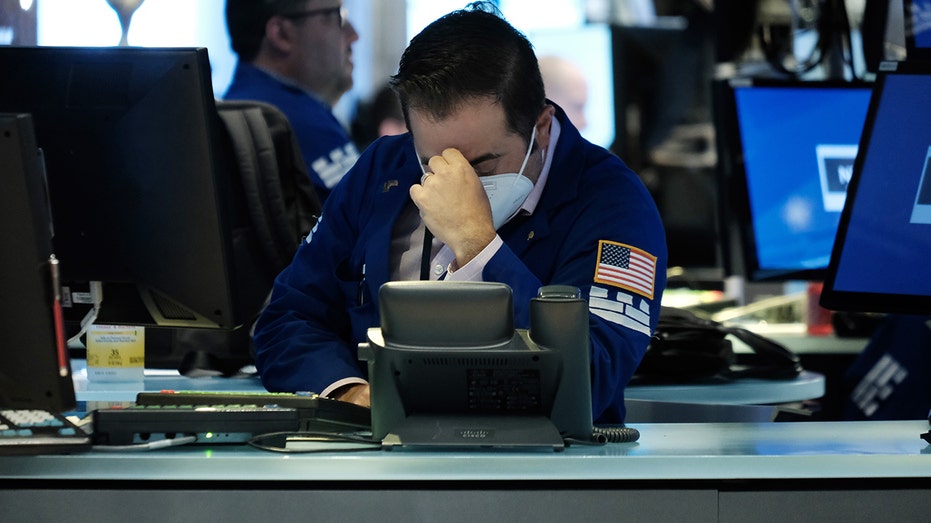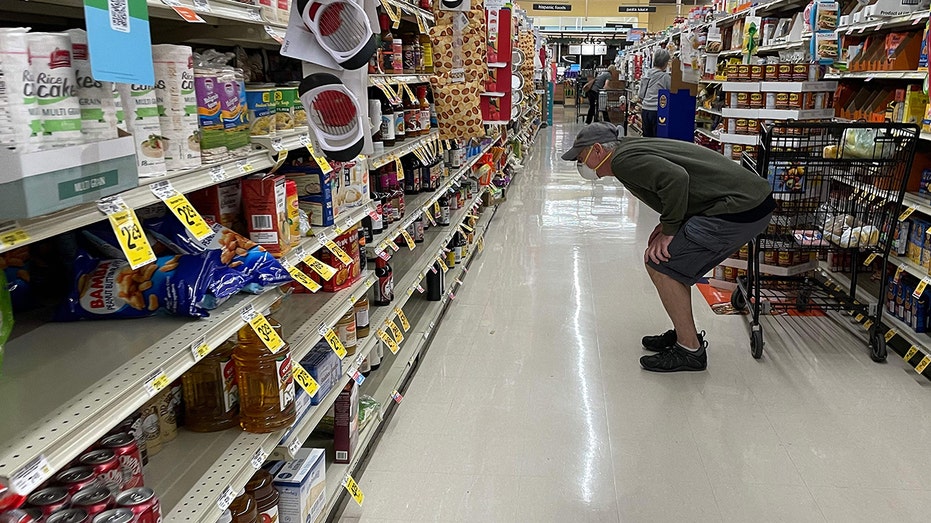Jim Lowell of Advisers Investments discusses the economy and volatility in the market.
The S&P 500 has gotten obliterated in a widespread sell-off this month, and the benchmark index is likely to drop even lower if the economy experiences a return to 1970s-style stagflation, according to Bank of America analysts.
In a recent analyst note, Bank of America strategist Savita Subramanian warned that a “worst case” stagflation scenario – the rare combination of economic stagnation and high inflation – could see the benchmark S&P 500 fall to 3,200, a drop of roughly 17% from current values. It would mark a stunning 33% drop from the beginning of the year.
S&P 500 FALLS INTO BEAR MARKET, JOINS NASDAQ
The S&P has already tumbled a little more than 20% this year, officially entering a bear market on Friday afternoon for the first time since March 2020, at the start of the COVID-19 pandemic. High inflation, rising interest rates and the risk of a recession have rattled investors in recent weeks.

Traders work on the floor of the New York Stock Exchange (NYSE) on May 18, 2022 in New York City. ((Photo by Spencer Platt/Getty Images) / Getty Images)
Stocks in this Article
$3901.36
+0.57 (+0.01%)
$11354.617127
-33.88 (-0.30%)
$31261.9
+8.77 (+0.03%)
So far this year, the benchmark index has been down for seven consecutive weeks, its worst stretch since the dot-com bubble burst in 2001. Subramanian has warned that investors should be wary as “recession risks are taking over,” and noted that current market conditions are reminiscent of the dot-com bubble.
WHAT IS STAGFLATION? WHY ECONOMISTS ARE WORRYING ABOUT A 1970S-STYLE CATASTROPHE
“In our 2022 year ahead report, one reason we were cautious was the array of similarities to 1999/2000, one of which was the acceptance of the unthinkable,” she wrote.
There are growing fears on Wall Street that the Fed may inadvertently trigger a recession with its war on inflation, which climbed by 8.3% in April, near a 40-year high. Other firms forecasting a downturn in the next two years include Bank of America, Fannie Mae and Deutsche Bank. Subramanian put the odds of a recession around 40%.
Economic growth in the U.S. is already slowing. The Bureau of Labor Statistics reported earlier this month that gross domestic product unexpectedly shrank in the first quarter of the year, marking the worst performance since the spring of 2020, when the economy was still deep in the throes of the COVID-induced recession.

A man shops at a Safeway grocery store in Annapolis, Maryland, on May 16, 2022, as Americans brace for summer sticker shock as inflation continues to grow. ((Photo by JIM WATSON/AFP via Getty Images) / Getty Images)
Fed policymakers already raised the benchmark interest rate by 50 basis points earlier this month for the first time in two decades and have signaled that more, similarly sized rate hikes are on the table at coming meetings as they rush to catch up with inflation. Chairman Jerome Powell recently pledged that officials will “keep pushing” until inflation falls closer to the Fed’s 2% target.
Still, he has acknowledged there could be some “pain associated” with reducing inflation and curbing demand but pushed back against the notion of an impending recession, identifying the labor market and strong consumer spending as bright spots in the economy. Still, he has warned that a soft landing is not assured.
CLICK HERE TO READ MORE ON FOX BUSINESS
“It’s going to be a challenging task, and it’s been made more challenging in the last couple of months because of global events,” Powell said Wednesday during a Wall Street Journal live event, referring to the Ukraine war and COVID lockdowns in China.
But he added that “there are a number of plausible paths to having a soft or soft-ish landing. Our job isn’t to handicap the odds, it’s to try to achieve that.”

No comments:
Post a Comment